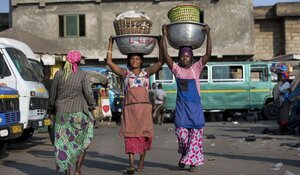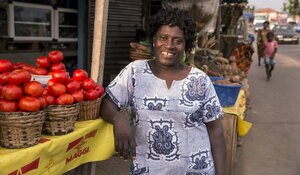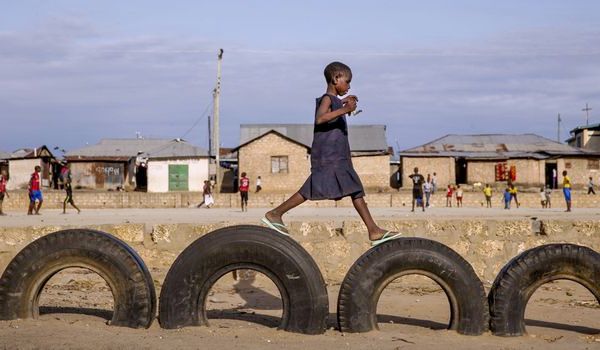Cracks on the Wall
The world of the tax havens is not as secretive as those who operate and benefit from it would prefer. Tax havens’ industry primarily exists to promote two main objectives: secrecy and low or zero taxation. These two services are specially attractive to those who want to minimize tax or who wants their financial activities kept secret. While the demand for the services offered by tax havens has grown exponentially over time, the defense wall built around the global financial secrecy industry has been started to show some cracks. Successive exposure by the International Consortium of Investigative Journalists going back to the Offshore Leaks in 2013, Panama Papers in 2016, Paradise Papers (2017), and most recently, the Pandora Papers (2021) have contributed to bringing to public attention an agenda hitherto considered too complex for public discourse. The Pandora Papers were released on the backdrop of the UNCTAD report that showed that African countries were losing up to 88.6 billion or 3.7% of the continent's Gross Domestic Product (GDP) to Illicit Financial Flows (IFF). The estimated loss represents almost double the previous estimates by the High-Level Panel on IFF from Africa that had put the figure at 50 billion in 2015.
Public Discontent

The growing scientific evidence on the magnitude of the financial resources hidden offshore combined by publicly accessible stories of high-ranking political figures and state officials siphoning public money to secretive foreign accounts through exposés such as Pandora papers has triggered a high level of anger and discontent and raised demands for accountability and transparency of tax systems both nationally and globally. The Covid-19 crisis has resulted in widening inequality — this is a significant threat to many African countries' economic and socio-political stability. A recent UNDP study indicated that Africa is home to 10 of the 19 most unequal countries globally. The African continent boasted of the highest growth of dollar millionaires, where the number of High-Net-Worth Individual (HNWI) has grown at twice the pace of the rest of the world in the last two decades (The Wealth Report, 2021). At the same time, the number of people living below the poverty line has been growing despite the overall reduction of extreme poverty. For African countries, the Covid-19 induced economic crisis has exposed the underlying systemic and structural deficiencies that are also exacerbating inequalities. This is threatening to push millions further down the poverty trap. Many governments are “caught between a rock and a hard place”. They are providing tax relief to businesses and taxpayers while consolidating tax collection. Some measures, including cash transfers, Corporate Income Tax (CIT) cuts, credit relief, and lowering Value-added Tax (VAT), have severely constrained state capacity to respond to the pandemic effectively. Considering that many African countries were already in economic distress pre-Covid, the crisis led to disruption on commodity market prices, sinking exports, and direct bearing on forex earnings. Major economic sectors, including agriculture, tourism, finance and other service industries are already experiencing a significant contraction. Considering the high level of informality, many of the tax measures and reliefs are not having the expected mitigating impact. A study by the Financial Transparency Coalition, published in April 2021, found out that government Covid-19 related bailouts have largely benefitted big corporations consuming for 64% of the total Covid-19 related government support.
The Coveted Investor

Confronted with a small and stagnating domestic economy, many governments are engaged in an aggressive effort to attract the coveted Foreign Direct Investments (FDIs). The competition to attract FDIs has resulted in an economically harmful race to the bottom. The most popular fiscal policy tool by governments across Africa is the use of tax incentives. The indiscriminate application of tax incentives and the creation of the so-called Export Processing Zones (EPZs) has contributed to a significant erosion of countries' revenue bases. Double Taxation Agreements (DTAs) have presented themselves as a tool for policymakers to attract foreign investors. DTAs with known tax havens have become a major cause of revenue leakage. Exposés such as the Mauritius leaks have proved how unscrupulous entities and wealthy elites can exploit loopholes in double tax treaties to evade or avoid paying their taxes legally. While DTAs are intended to ensure that taxpayers are protected from risks of double taxation, the reality is that they have become an essential tool for tax planning and aggressive tax avoidance. In groundbreaking public interest litigation, the Tax Justice Network Africa (TJNA) successfully challenged the Kenya-Mauritius DTA signed in 2010. The precedence-setting ruling that annulled the DTA exposed Mauritius's infamous role as the investment gateway to Africa while in substance providing the gateway for companies to shop for the most favorable treat arrangements that minimize their tax obligations (“treaty shopping”) and profit shifting. It is estimated that Senegal would have lost an estimated sum of $ 8.9 million in taxes, following its tax treaty of 2002, with Mauritius, in particular via companies that exist only on paper (“shell companies") such as SNC-Lavalin, exposed in the Paradise Papers. It is no surprise that shortly after the decision of the Kenyan courts, Senegal cancelled their treaty with Mauritius.
Beyond the abuse of tax treaties, recent development has seen African countries strive to establish themselves as International Financial Centers (IFC). The purpose of these IFCs, according to the government, is to provide a “one-stop shop for foreign investors”. However, a review of the legislation governing the IFCs in these countries shows a different picture. The IFCs in countries such as Kenya and Rwanda provide preferential treatment to foreign investors through a broad range of tax-related incentives that threaten to erode these countries' already weak tax bases. In a case that is still ongoing, TJNA has contested the legality of the Kigali International Financial Centre in the East Africa Court of Justice.
A Seat at the Table

There is a consensus that the current global financial system is characterized by a high level of opacity, that weak and outdated rules and standards are not fit for purpose, and that there is an urgent need for reforms. Efforts to reform the global tax governance architecture gained significant attention, particularly in 2020. The establishment of the The UN High Level Panel on International Financial Accountability, Transparency and Integrity for Achieving the 2030 Agenda reignited the demand for a radical overhaul of the global financial system to ensure that it is fit for purpose to deliver on the Sustainable Development Goals. However, reforms of the global taxation system continue to be dominated by rich countries under the auspices of the OECD. The current uneven power structures and dynamics that characterize the global tax governance system reflect the vested interest and control underpinned in post-colonial legacies. Calls and demands for a more inclusive framework under the UN continue to face resistance from rich countries. The agreement on a global minimum tax under the OECD-led Base Erosion and Profit Shifting (BEPS) best exemplifies how the interest of rich countries continue to dominate and override those of developing countries. The global minimum rate of 15% tax on multinational corporations endorsed by the G20 in Rome in October 2021 will negatively impact the revenue bases, particularly for developing countries. TJNA has argued that the global minimum tax of 15% will restrict the ability of governments to increase their CIT and lead to significant revenue losses. It is for these reasons that TJNA together with other civil society organizations including the Global Alliance for Tax Justice (GATJ) have called for a rejection of the OECD tax deal.
To sum up, harnessing domestic resources provides one of the clearest pathways for African countries to finance their economic development and contribute to a structural transformation of their economies (15 December 2021).

